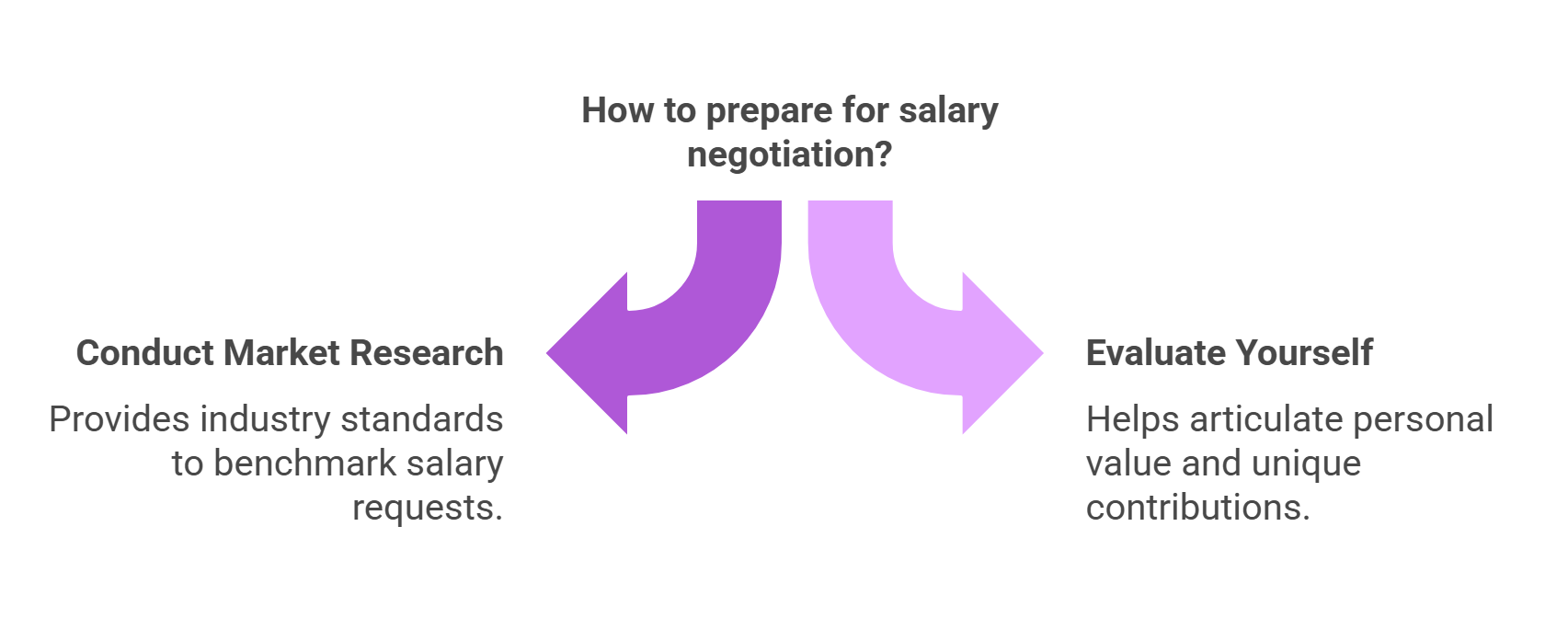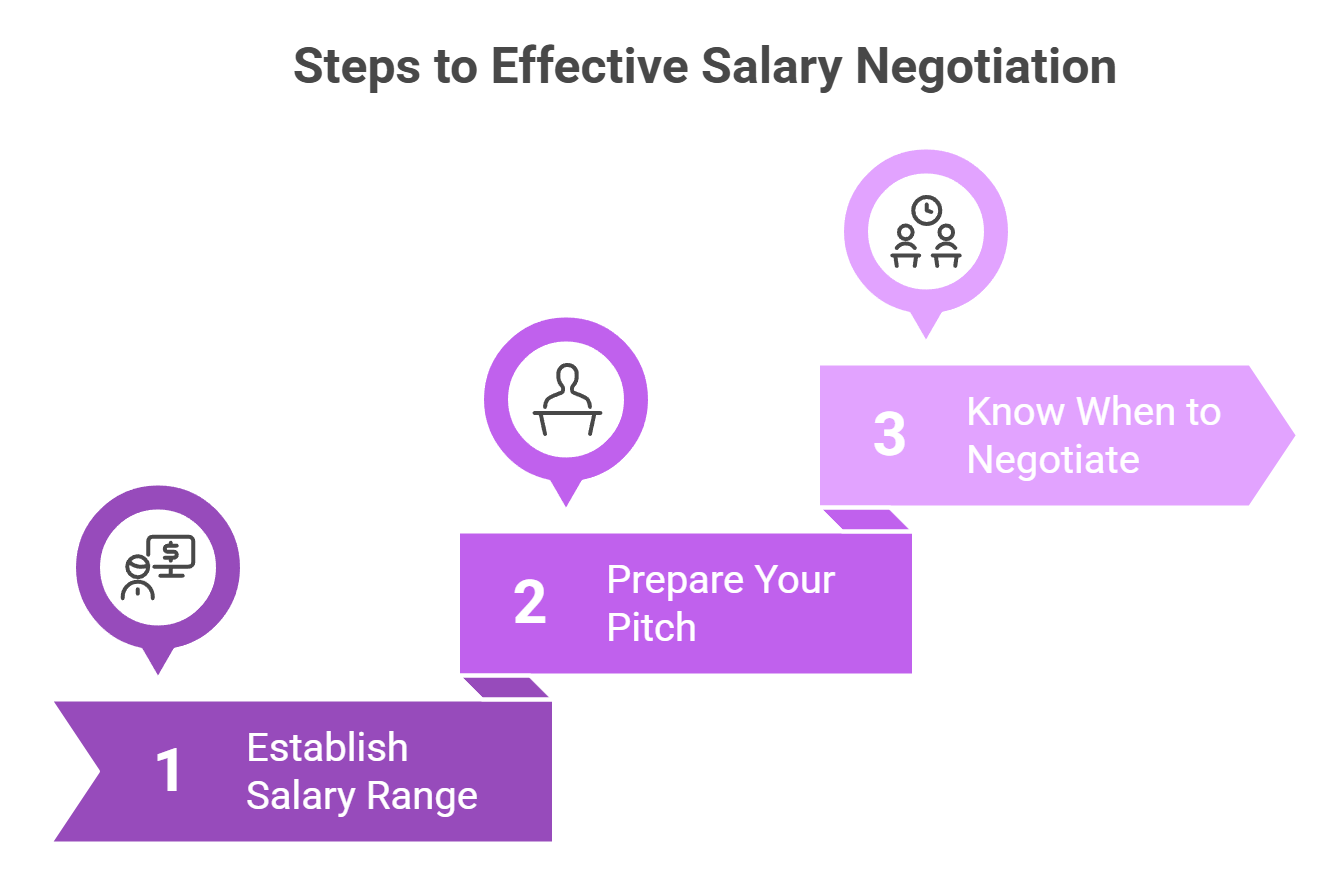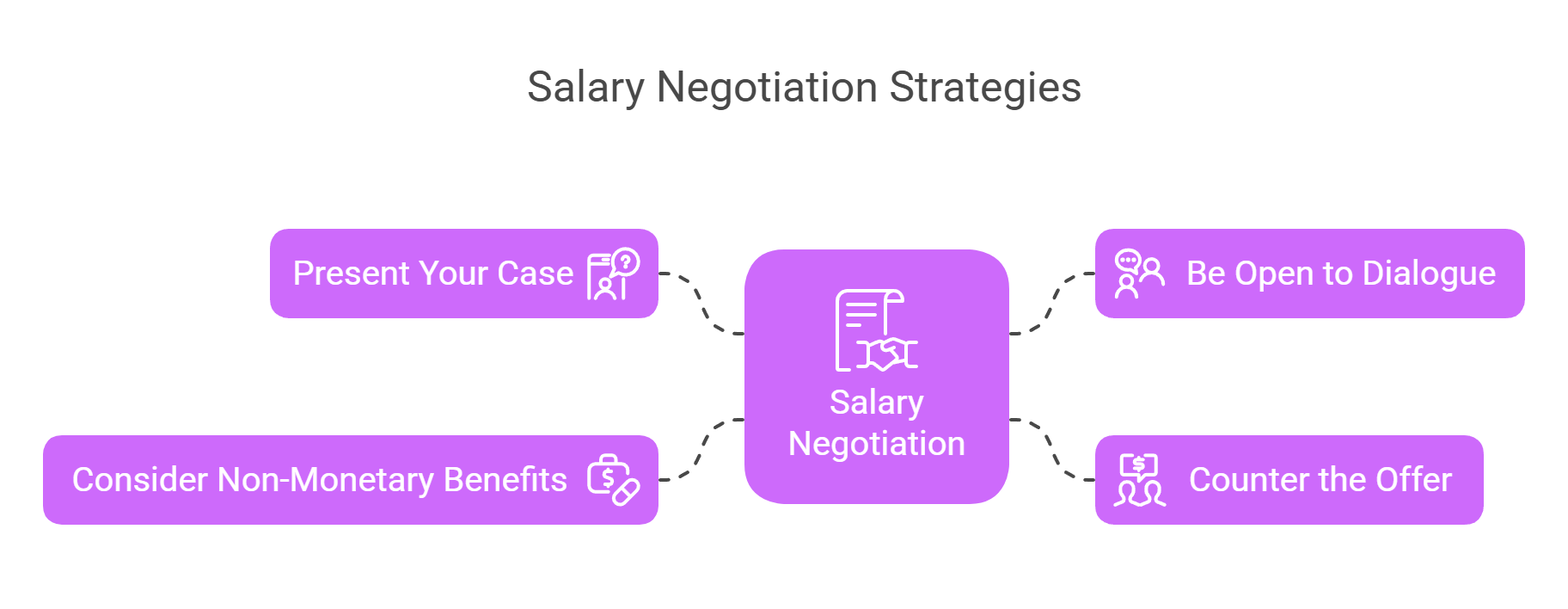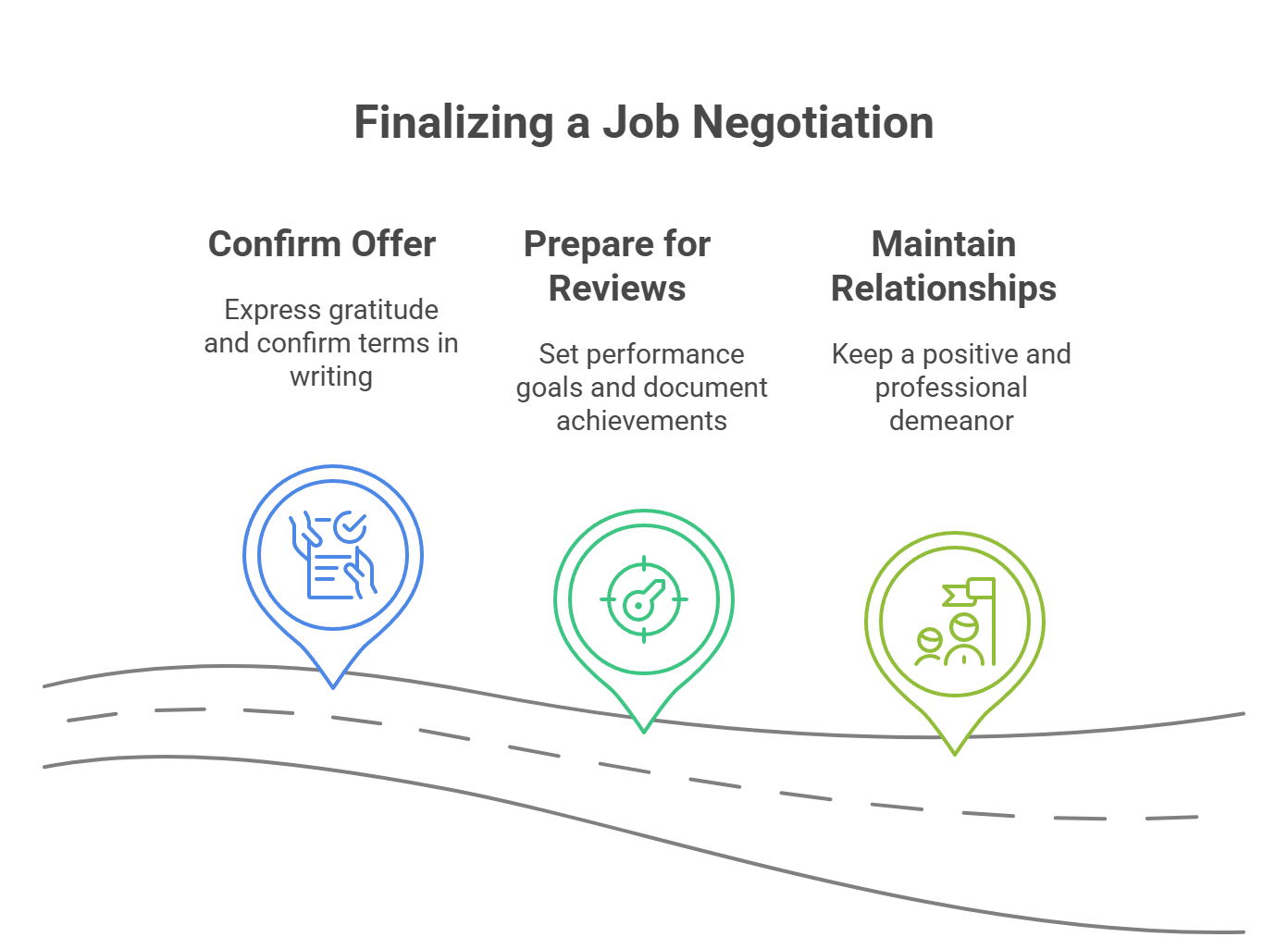A recent survey found that men are more likely to negotiate for higher salaries, with 32% of men compared to 28% of women having negotiated for better pay.
Many individuals feel uncertain about how to approach this delicate conversation, fearing they might jeopardize their job offer or appear overly demanding.
This article will guide you through the important steps to negotiate your salary with HR, so you can confidently secure a compensation package that reflects your value and expertise.
Prepare for the Negotiation
Before you enter discussions with HR, here are some things you should consider and read up on as much as possible.
1. Conduct market research
Start by researching the typical salary range for your role in your industry and geographical area. At OysterLink, all of our salary guidelines for over 40 different hospitality positions utilize reputable resources such as the Bureau of Labor Statistics.
This data will provide a solid benchmark for your negotiations, so you can make informed requests based on industry standards.

2. Evaluate yourself
Reflect on your skills, experience and accomplishments. Consider how these factors align with the job's requirements. Ask yourself:
- What unique skills do I bring to the table?
- How have I contributed to past employers?
- What are my career achievements that I can measure?
Creating a list of your strengths and achievements will help you articulate your value during the negotiation. If you need help understanding what employers look for, check out our career page and select the position you’re interested in applying for.
Craft Your Negotiation Strategy
Once you have gathered your research and performed a self-assessment, it’s time to develop a negotiation strategy.
1. Establish your salary range
Determine a salary range based on your research. Aim for a figure that is realistic yet ambitious. A good rule of thumb is to set your target salary at the higher end of the market range you’ve identified, allowing for some flexibility during negotiations.
2. Prepare your pitch
Develop a concise and compelling pitch that highlights your qualifications and justifies your salary request. Your pitch should include:
- Market data: Reference your research to show that your request aligns with industry standards.
- Your value: Clearly outline how your skills and experience will benefit the organization.
- Flexibility: Indicate your openness to discussing the overall compensation package, including benefits and bonuses.

3. Know when to negotiate
Timing is key in salary negotiations. Knowing when to bring up the topic can significantly influence the outcome.
Consider the company’s financial health, industry trends and your career milestones.
For example, if you’ve just completed a significant project or received positive feedback, it may be an ideal time to initiate salary discussions.
It’s Time To Negotiate
When you are ready to negotiate, approach the conversation with professionalism and confidence.
1. Present your case
Clearly articulate your salary expectations while backing them up with your research and self-assessment. Use positive language to frame your request, such as:
“I would like to discuss the possibility of a salary adjustment based on my performance and experience.”
2. Be open to dialogue
Negotiate as a conversation rather than a confrontation.
Listen to HR’s perspective and be prepared to engage in a constructive discussion. This approach fosters a collaborative atmosphere and increases the likelihood of reaching a favorable outcome.

3. Counter the offer
If the initial offer does not meet your expectations, be ready to present a counteroffer. Your counteroffer should be well-reasoned and reflect the research you’ve conducted.
Draft a professional email or request a meeting to discuss your counteroffer. A written record of your position can help clarify your stance and facilitate further discussions.
Consider the following elements:
- Specific figures: Provide a specific salary figure or range.
- Justification: Reinforce your request with data and examples of your value.
- Consideration of benefits: If the salary is non-negotiable, explore other compensation aspects, such as bonuses, additional vacation days, or flexible work arrangements.
4. Consider non-monetary benefits
Sometimes, salary negotiations may not yield the desired financial outcome. In such cases, consider negotiating for non-monetary benefits that can enhance your overall compensation package.
Types of non-monetary benefits can include flexible work arrangements, professional development opportunities, and additional paid time off.
How To Finalize the Negotiation
Once you reach an agreement, ensure that all details are documented for a trail of accountability and clarity in future discussions.
1. Confirm the offer
Express your gratitude for the opportunity and confirm the agreed-upon salary and benefits in writing.
This step protects both parties and establishes a clear understanding of the terms.
If needed, discuss a mutually agreeable start date, taking into account any notice periods or other commitments.
2. Prepare for reviews
After securing your salary, proactively prepare for future salary reviews by setting specific performance goals.
Regularly track and document your achievements to strengthen your case for potential raises and promotions in subsequent evaluations.

3. Maintain professional relationships
Regardless of the outcome, maintain a positive relationship with Human Resources and your employer. Professionalism and courtesy can open doors for future opportunities.
Understanding the Importance of Salary Negotiation
Negotiating your salary is not just about securing a higher paycheck — it’s about establishing your value within the organization.
When you negotiate, you set the stage for future salary discussions and potential raises.
Accepting a lower offer can have long-term implications on your earnings, as future raises are often calculated as a percentage of your initial salary.
The Long-Term Impact of Salary Negotiation
Salary negotiation can significantly influence your career earnings and advancement opportunities over time.
- Future salary increases: Accepting a low starting salary can lead to smaller raises over time, affecting your overall earning potential.
- Market value recognition: Negotiating demonstrates your understanding of your worth and market standards, which can improve your professional reputation.
- Empowerment: Engaging in salary discussions allows you to advocate for yourself and reinforces the value you bring to the company.
Why Salary Negotiations Are Important
Mastering salary negotiations with human resources is a crucial skill that can significantly impact your career trajectory.
When you prepare thoroughly, understand your value and approach the conversation with confidence, you can negotiate a compensation package that reflects your worth.
Remember, effective salary negotiation can also improve your interpersonal skills and make you more confident if and when you have to re-negotiate another salary bump down the line.






Loading comments...